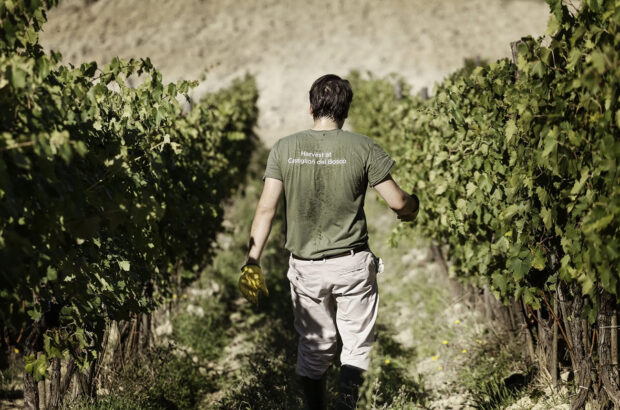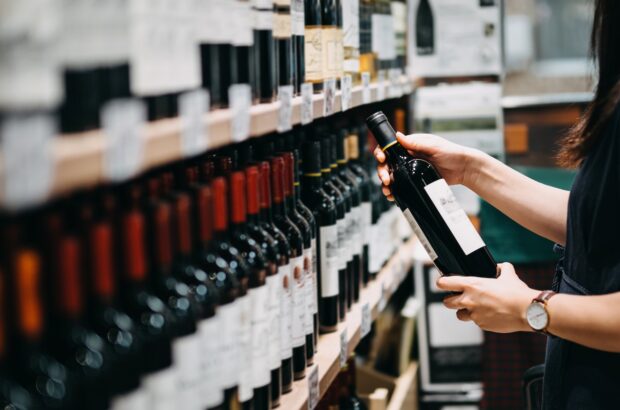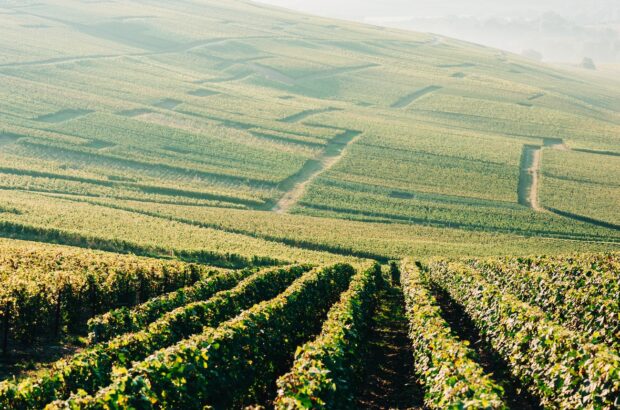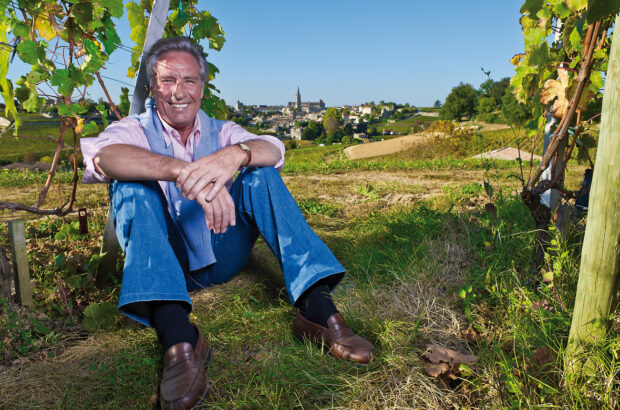Elias Maalouf was squishing grapes at his Rayak Winery and Distillery, a smaller vineyard with 12 hectares of cultivated land in Lebanon’s Bekaa Valley, on 23 September, when a bomb flew out of the sky and landed in front of his building. The blast blew out the roof of his laboratory and shattered many of the bottles of wine kept in a storeroom. It also damaged his and his parents’ houses. Passersby were killed and Maalouf’s nerves were shattered.
Hits from rockets and shrapnel have put large swathes of vines on the other side of the border out of bounds. Dalton Winery cultivated its Pinot Grigio grapes in the vineyards on the Israeli border with Lebanon but these were made inaccessible as a result of cross-border shooting. Another section of the Dalton vineyard was ravaged by a fire, caused by falling debris from an intercepted rocket, in April this year. The company has lost some 100,000 bottles of its 1.2 million annual production of bottles of wine.
‘We are living day by day, we never know what will happen next. We make sure that when we leave the vineyard for the evening the job is done and the tank is full because we don’t know what tomorrow will bring,’ said Alex Haruni, CEO of Dalton Winery in the Israeli Upper Galilee.
The pressure of war on all winemakers can be close to unbearable. ‘We never knew that winemaking was going to become a threat to our lives, a threat to our families, a threat to being who we are now,’ said Maalouf.
Many vineyards are uncomfortably close to the military action. Lebanese wineries are mostly situated in the Bekaa Valley where Israeli bombing has been intense. Israeli winemakers are located on the Lebanese border where Hezbollah rockets have been raining down for the last year. Either way, there is no escape for those whose sole interest is to make and sell wine.
Israel, with 40 million bottles annually, has the larger wine production than the Lebanese winemakers who produce eight to nine million but Lebanon has an estimated two billion bottle annual production of arak, the local spirit. Both sides are looking at a sharply lower sale, down by as much as a third, for 2024.
Persuading workers to go out to collect grapes while rockets are clattering around them presents challenges to both sides. ‘If someone is afraid of going out, we fully understand and will find him a job inside the winery,’ says Gal Yariv, CEO of the Pelter Winery, whose vineyards are in the Galilee and Golan, Israel’s two security hotspots.

Burnt land at Pelter Winery. Credit: Pelter Winery
Winemakers in the Bekaa Valley are sending out their employees later in the morning to pick the grapes than they would in normal times so they can see the road clearly where they are travelling. ‘They like to have light on the road. It makes our workers feel more secure,’ said George Sara, CEO of Château Ksara, Lebanon’s largest winery, making three million bottles a year.
Israeli employers are reducing the length of the days that their employees have to be exposed to risk. The workers used to go out to the fields between 8am and 5pm, but now they only work until midday or 1pm, according to Haruni, of Dalton Winery, which has vineyards on the Israeli side of both the Lebanese and Syrian borders. ‘We want to keep everyone as safe as possible. If rockets are falling people want to get back to their families and their kids. We want to keep them at ease as much as they can,’ he said. His biggest concern is bottling this year’s vintage as this requires a full day in the winery at any one time for it to be economically viable.
The company has three bomb shelters at the winery into which workers can retreat if there is a warning. But the travel to get to the winery through the forests in the Galilee can be scary, and Haruni says he travels with a helmet and a flak jacket in the back of his car. ‘These are absurd times,’ he said. Wineries are regarded as ‘open areas’ by the country’s military authority and rockets that are headed to land in such an area are not intercepted, he added.
War has left much of the indigenous Lebanese Obeidy grape withering on the vine as this ripens late and is picked at the end of the season, in October. Family-owned producer Château St Thomas’s Obeidy crop is planted in fields in the north of the Bekaa Valley, where bombing has been particularly intense. ‘The workers don’t want to go out to pick the Obeidy grape. If they are prepared to do so, they charge a lot which is understandable. The grapes are sitting there without being picked.’ said owner Nathalie Touma. ‘We feel great responsibility when we do send them out.’
The arak production at Domaine des Tourelles, another winery in the Bekaa, is also going to fall this year as a result of the war said Faouzi Issa, whose family are its owners. ‘You cannot go and harvest the grape right now. The missiles are everywhere in the region, especially where we harvest for the arak, next to Baalbek,’ he said.
Exports account for around half of Lebanon’s annual production and so long as the road from the Bekaa Valley to Beirut remains safe, Lebanese wineries hope to maintain reasonable business in 2024. Israeli exporters are not so sanguine. Although its ports are safe, a protest boycott from distributors across Europe following the outbreak of the Gaza war is hurting sales. ‘We are being supported by Jewish communities who are staying loyal to our produce,’ said Yariv.
The determination to get the grapes off the vine and bottled unifies both nationalities of winemakers. As Maalouf surveyed the wreckage of his shattered winery, he said, ‘No matter what bombs are thrown around, no matter what is happening, I promised myself I won’t give up. I have a family to support, and I will be squishing grapes, hopefully very soon. The decision to make wine is not just about not giving up. We need to make wine. It’s our livelihood.’
A unity around wine is perhaps the best hope for both warring parties. ‘We hope we can get through this quickly and resume our lives and spread the message of love through our bottles to the world,’ said Sara.






